20 May 2025
Practical Solutions for Pollinator-Friendly Farming
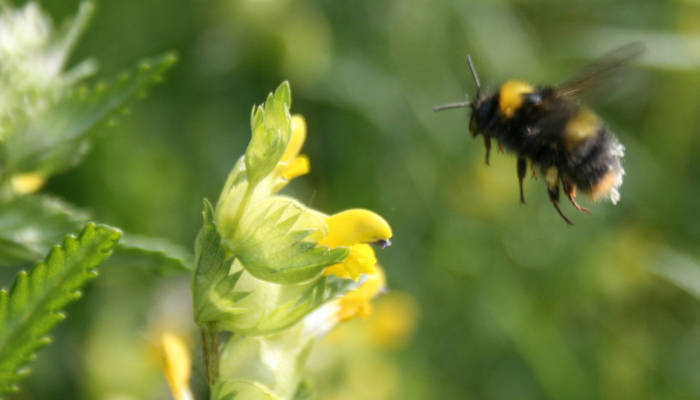
In celebration of World Bee Day 2025, Biodiversity Technician Claudia Barry and Research Officer Saorla Kavanagh share the details of the EU CAP networks Workshop on ‘Promoting Pollinator-Friendly Farming’.
In June 2024, the EU CAP Network hosted a workshop on “Promoting Pollinator-Friendly Farming” in Ljubljana, Slovenia. In line with the EU Biodiversity Strategy for 2030, the EU pollinators Initiative, and the Nature Restoration Law under the European Green Deal, the goal of the workshop was to share knowledge, innovative ideas, and best practices to help farmers support pollinators on their land. Teagasc Farmland Biodiversity Research Officer, Dr Saorla Kavanagh was the coordinating expert at the event.
Why Slovenia?
Slovenia was chosen as the host country because it has many successful examples of pollinator-friendly farming. The country has excellent examples of strong cooperation between farmers, researchers, NGOs, and policymakers, making it an ideal place to showcase practical solutions.
Key Discussions and Activities
The event brought together 69 participants, including 10 farmers and 27 advisors, from 21 countries. The workshop started with a presentation giving an overview of the status of Europe’s pollinators, their importance, the threats they face, and the policies in place to protect them.
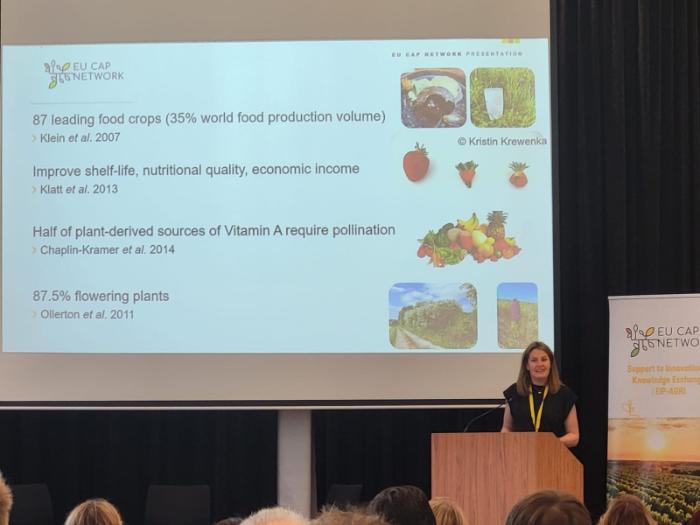
This was followed by:
- A panel discussion on three successful pollinator-friendly farming projects. Irish dairy farmer Rachel Creighton sat on the panel to discuss the lessons learned from the Protecting Farmland Pollinators EIP project.
- Poster presentations highlighting different pollinator-friendly initiatives where Kildare farmer, Colm Flynn presented the Farmer-led Moth Monitoring EIP project.
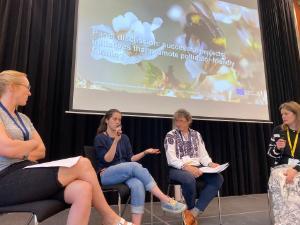
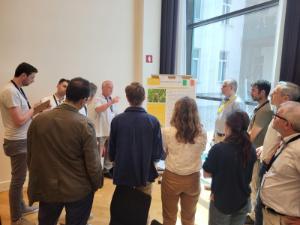
To see best practices in action, participants took part in two field visits to Natura 2000 sites:
- A hay meadow in Roje, north Ljubljana, home to 164 flowering plant species. Here, insights were given into two EIP-AGRI Operational groups, coordinated by the National Institute of Biology Slovenia – the Supporting pollinators in intensive agricultural landscapes to promote biodiversity (EIP-POMOP) and the Fruit growers for pollinators and pollinators for fruit growers (EIPSOOS)
- Ljubljana Marshes, south Ljubljana, the largest marsh area in the country, home to a species rich grassland where an overview of the EIP-AGRI Operational Group project Farming with (for) biodiversity on lowland farms in Slovenia (EIP VIVEK) was given by BirdLife Slovenia.
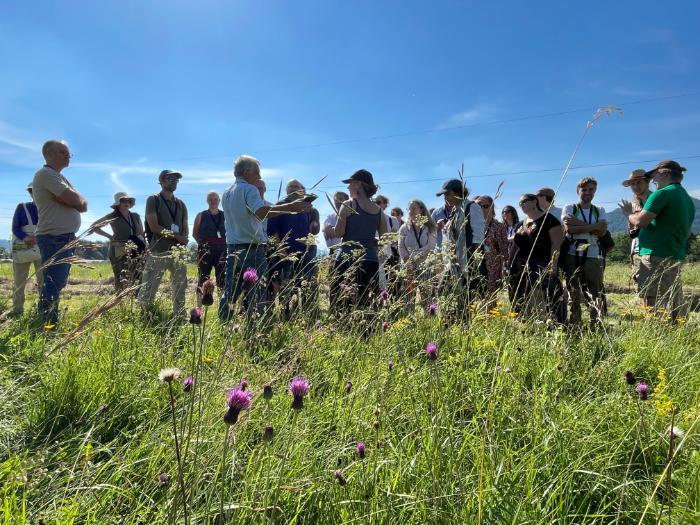
On the second day, the discussions focused on research priorities, practical solutions to help farmers adopt pollinator-friendly farming practices. Training, cooperation, and education are needed to enhance pollinator-friendly farming in Europe.
Research Priorities for Pollinator-Friendly Farming
Discussions highlighted several research priorities, including:
- Understanding the co-benefits of pollinator-friendly farming.
- Learning more about lesser-known pollinators.
- Increasing flower availability in farm landscapes.
- Finding ways to support farmers in stopping pollinator decline.
Practical Solutions for Farmers
To overcome challenges and help farmers implement pollinator-friendly farm management practices, participants proposed several solutions:
- Demonstration farms to show real-world examples of best practices.
- Peer-to-peer mentoring so farmers can learn directly from each other.
- Better financial and advisory support and policy incentives.
- Provision of local expertise and clear management guidelines tailored to local conditions.
Looking Forward
Protecting pollinators requires action at all levels – local, national, and European. Farmers play a crucial role in protecting pollinators but need clear and simple guidance. By working together, sharing knowledge, and providing better supports, pollinator-friendly farming can become a practical and rewarding part of agriculture across Europe and around the globe.
For more information you can read the final report written by coordinating expert Saorla Kavanagh.
